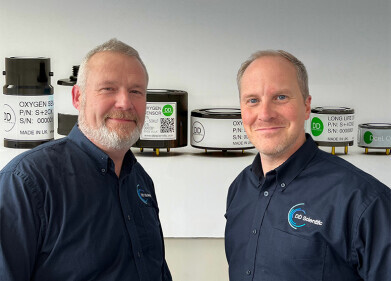Business News
Online vs Instore - Which Way Should You Shop?
Jul 07 2019
Shopping online has become an increasingly popular and ever-more convenient method of retail therapy. However, concerned environmentalists argue that the carbon footprint of home delivery greatly outweighs that involved with visiting a brick-and-mortar store. For their part, online companies claim that their services are actually greener. Who is right?
The truth is dependent entirely on the circumstances of each individual transaction. Has the buyer chosen speedy delivery? Will their purchases be grouped together with others, or is it a one-off? What kind of vehicle is the delivery company using? And if visiting a physical location, what mode of transport is being used to get there? All these variables contribute to this complex equation.
The current state of play
While it will depend largely on the criteria listed above, the general consensus appears to favour online retail slightly more than instore buying. That’s because a standard delivery route in the UK will be comprised of 120 drops within a 50-mile radius, producing 20kg of CO2 or 170g per item. On the other hand, driving to and from a store at an average of 13 miles away would produce 24 times those emissions.
Of course, that scientific theory does not account for variables in the equation. What if the delivery driver can’t find the location first time? What if there’s no-one home? What if the buyer wants to return their purchase? If any of these events occur, the carbon footprint of the whole arrangement could be increased significantly. As a result, it’s impossible to reach a definitive conclusion about whether online is more environmentally-friendly than instore, though it’s certainly possible for both parties to improve their shopping habits.
The consumer
If buying online, it makes prudent sense to bundle your purchases into one single delivery. Not only do many companies offer a discounted or free service when doing so, but you’ll reduce your carbon footprint significantly. If you choose expedited delivery, you’ll limit the sender’s ability to group items together, meaning they will have to undertake multiple journeys instead of just one.
Meanwhile, those who prefer to head to a brick-and-mortar location should avoid private vehicles, unless it’s an environmentally-friendly form of road transportation such as an electric vehicle (EV) or hybrid car. Even these only move the emissions from an urban setting to the place where the power plant is located, however. Cycling, walking or taking public transport is a preferable method of travel… or better yet, not purchasing at all incurs even fewer emissions. Consumers should consider carefully whether they actually need the product before buying.
The delivery company
At the other end of the spectrum, delivery companies should stay away from the temptation of offering their clientele individual or speedy delivery options and certainly never include it as standard. They can also cut emissions by using EVs or hybrids (just like consumers can) or getting even more creative with their delivery methods.
Drones have been introduced slowly into the commercial sector, although companies like Amazon and Fedex do seem to be planning their future strategies around these remote-controlled flying machines. Recent studies confirm that smaller drones are better for the environment than HGV trucks every single time, given that they are capable of delivering a package with 420g of emissions compared to 920g for a HGV. Larger drones, on the other hand, are not quite as efficient as either. In any case, it’s clear that both consumers and companies can do more to enhance their environmental credentials.
Digital Edition
IET 34.2 March 2024
April 2024
Gas Detection - Biogas batch fermentation system for laboratory use with automatic gas analysis in real time Water/Wastewater - Upcycling sensors for sustainable nature management - Prist...
View all digital editions
Events
May 13 2024 Munich, Germany
May 15 2024 Lund, Sweden
May 15 2024 Frankurt-am-Main, Germany
May 20 2024 Columbus, OH, USA
May 21 2024 Lagos, Nigeria



















